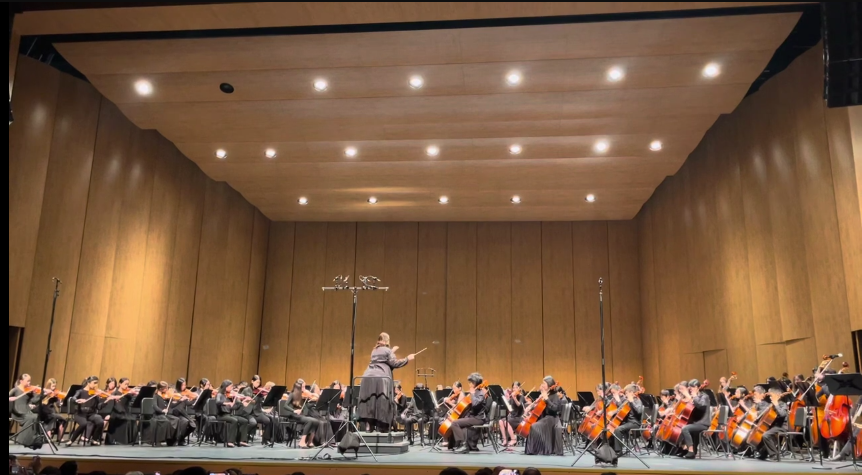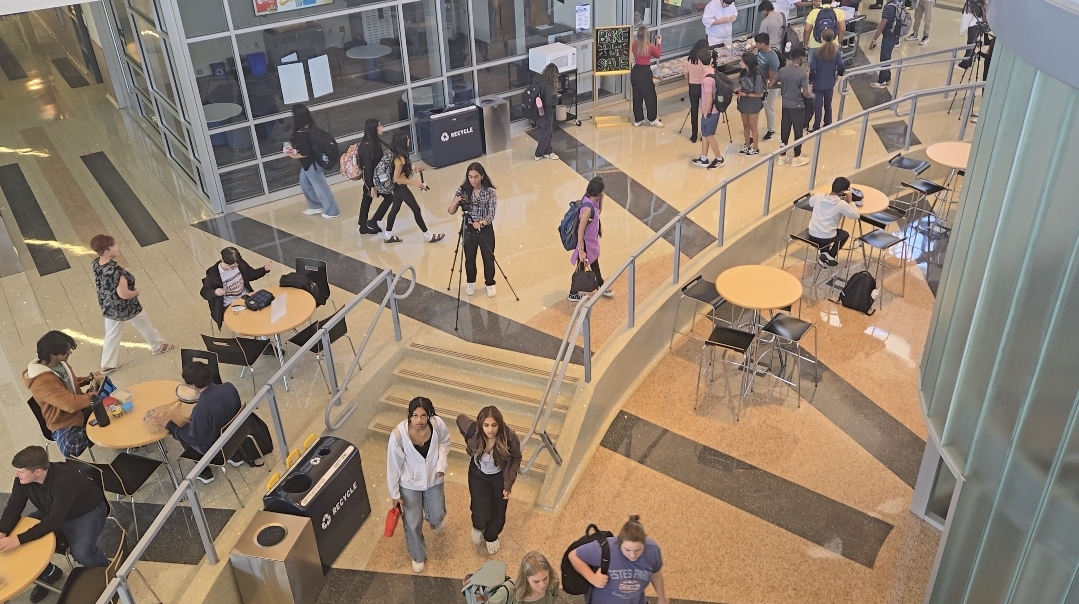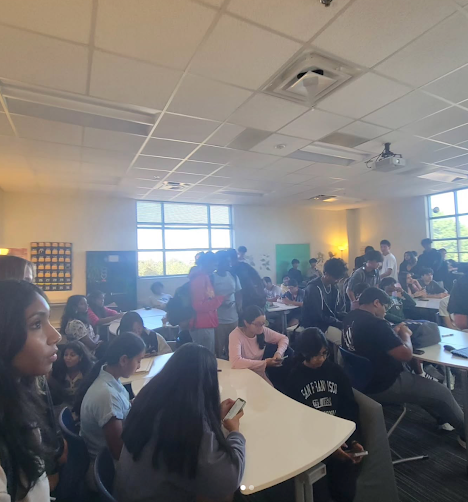FRISCO, TEXAS – Each year, an opportunity for fine arts members across the region arises; students get to audition for a spot in the All-Region Orchestra, Choir, or Band for that year, in which the top players get to perform at the end of the year. It requires two months of committed practice to learn the three solo pieces and etude (a short musical composition) and perform the revised cuts in auditions before judges.
All-Region helps students’ musical journey by providing them with the opportunity to gain more practice with music techniques they often struggle with, as well as providing them with real audition experience.
Swathi Subramanian, a freshman All-Region participant who placed first chair in the second violin section, shared what All-Region taught her. “I learned a lot of musical techniques. I improved myself in a lot of areas musically because I practiced so often. I improved my tone and my intonation, definitely my bow hand as well,” Subramanian said.
Isha Goel, a senior who participated in choir’s All-Region and All-State competitions shared, “I improved my vocal technique with control over my tone, vibrato, and vocal stability,” Goel said.
Subramanian appreciated the time she had to practice her pieces to perform. “It took me a really long time to get the pieces down and I had to be concise in my practice, doing it every single day,” she said.
Subramanian had a method to how she practiced that helped her learn the music. “I would usually start with open notes and warm on the different kinds of bow strokes before moving on to scales. If my All-Region music had some hard tempos or rhythms, I would practice them with the scales. And [for] actually practicing, I would go note by note.”
Goel spaced out her practices each week. “I would… practice in advisory and with my voice lessons teacher maybe like one or two hours a week. It was hard at first, but after practicing it got easier,” Goel said.
To audition, musicians are given a time to check in for the audition on Saturday. The chairs the students sit in face away from the screen, separating the judges from the musicians. Musicians are given one minute to practice. Then, two players are called: one who is up to play and one who is on deck. The monitor must announce the number of the person and the judge must repeat it before the person plays. After the first person plays, the person on deck plays. This process continues until all players have played the first piece and it’s time for the next one.
All-Region isn’t just for high school; it’s available for middle schoolers as well. There are differences between the high school and middle school audition processes and music. “I did it in middle school and it was online though because it was during Covid so it was different. The high school process is longer [with more rounds] and the music is harder,” Goel said.
Subramanian explained the main obstacle that she faced in middle school All-Region: “I think I didn’t make it because I was too nervous and unconfident auditioning in middle school. Confidence is key,” she said.
She focused on improving this in her high school audition while learning other skills. “I learned to be dedicated for my practice because its been a while since I’ve practiced this much,” Subramanian shared. “I also learned how to calm down my nerves because every time when I had auditioned before I had been too nervous but this time I was calmer.”
Lack of confidence was an area of improvement for Goel as well, along with learning to overcome obstacles in the music. “I learned perseverance because I kept wanting to pass the audition so I worked hard. Auditioning helped with the confidence,” she said.
For students auditioning next year, it can be helpful to have some advice from people who have previously made All-Region.
Being properly prepared with an effective amount of practice is highly impactful for auditioning.“If you’re auditioning, you have to commit to it and actually put in the effort and you’ll do well if you put in the effort,” Goel said.
Subramanian thinks that confidence is the most important aspect to know about.“[I advise you t]o not be nervous. If you get nervous, you freeze up when you play and all your practice goes to waste,” she said. “Take a few deep breaths and calm down before you perform, its not the end of the world.”
Final thoughts about having a good performance tie into Subramanian’s previous advice.
“You can do anything when you practice. But when you go to audition, it’s truly about the confidence,” Subramanian said.









